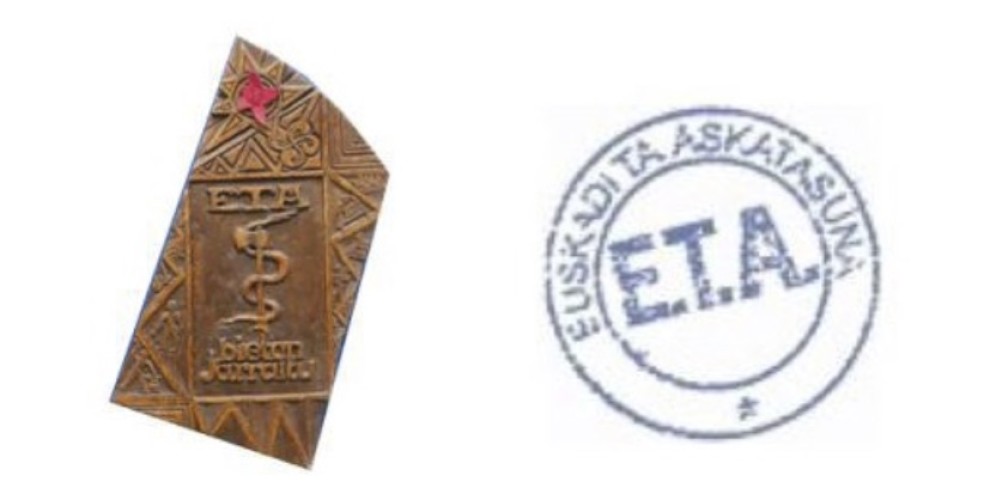ETA dissolution: consistency, honesty and political vision
“ETA was born out of the Basque people and now it dissolves in it”
“ETA was born out of the Basque people and now it dissolves in it”

Later today the BBC will broadcast a video released by the Basque organization ETA in which it announces its dissolution.
ETA has already explained the reasons of its decision in a couple of documents, made public in the past weeks. Indeed, this is, as ETA itself said, “the logic consequence” and the final step of a process initiated unilaterally in 2011.
In its communique to to Basque people, published on Thursday, ETA informed of “the end of its trajectory after that its militancy has ratified the proposal to consider concluded the historical cycle and the function of the Organisation”.
As a result of this decision, ETA announced to have “totally dismantled the whole of its structures” at the time when it “considers concluded all its political activity. It would be no more than a party manifesting political positions, promoting initiatives or engage with other actors”.
Being a people-based organization, ETA stressed that clearly its “former militants will continue their struggle for a reunited Euskal Hernia, independent, socialist, euskaldun [Basque-speaking] and non patriarchal in other fields, each one where they deem it appropriate, with the usual responsibility and honesty”.
Reminding that the organisation was born when “Euskal Hernia was agonising, strangled by the claws of Franco fascism, and assimilated by the Jacobin state, and now, 60 years later, there exists a people, alive, who wants to be owner of its own future, thanks to the work carried out in various contexts and the struggle by different generations”.
The Basque socialist organisation went on saying it “wishes to close a cycle in the conflict facing Euskal Herria to the states, the cycle characterised by the use of political violence. Despite this, the states insist on perpetuating this cycle, aware of their weakness in the context of strictly political confrontation and fearful of the situation that a comprehensive solution of the conflict will provoke. On the contrary, ETA has no fear of this democratic context and for this reason it has take this historical decision, so that the process in favour of freedom and peace could continue along other routes. It is the logic sequence after the decision taken in 2011 to definitively abandon the armed struggle”.
Looking at the future, the organisation recognises that “the main challenge will be building a process as a people that will have as its axes the accumulation of forces, the popular activation and the agreements among different, both to approach the consequences of the conflict as well as its political and historical root. Materialising the right to decide to achieve national recognition will be the key. Left independentism will work to ensure it will lead to the constitution of the Basque State”.
The last sentence of the communique contains actually the key of one of the reason why ETA has enjoyed so much support all those years, and why the conquests and progress made by the Basque society ultimately also depends on the organisation’s activity. “This last decision was adopted to favour a new historical phase. - the communique reads - ETA was born out of this people and now it dissolves in it”.
Clearly the struggle for making the right to decide a reality is not over. But, contrary to the States (the Spanish and French), ETA is full aware that things have moved on and a new process was needed. Indeed, already in 2009 the Abertzale left had decided to adhere from then on to the so called Mitchell’s Principles, thus opting to pursue a solution to the conflict only through political ways.
Furthermore, the Abertzale left decided that this process will be carried out unilaterally, given that the Spanish government had shown total closure to the request of a negotiated solution to the conflict.
In 2011, and after thousands of debates organised among the civil society, it was the time for ETA to answer to the requests coming from the people.
ETA announced then the definitive abandonment of the armed struggle.
The process has continued, unilaterally, and the Basque society has rewarded the Abertzale left by turning out and voting for it, taking their representative to govern many important cities and councils.
ETA on its part, followed its own agenda, and decided to deliver part of its armament to the civil society (namely to the “artisans for peace” group) given the continuous closure and stubborn refusal by the Spanish government to face up to its responsibility and engage in meaningful dialogue.
Now this new chapter, closing a page, but certainly not the end of the book being written of the struggle for Basque independence.